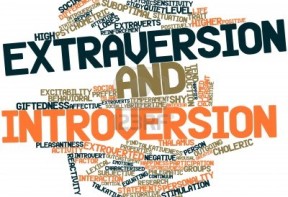Introverts have enjoyed a renaissance over the last several years. Countless news headlines have extolled the benefits of retaining a bit of reclusiveness in your everyday life, including the ability to listen actively and possessing the kind of slow-motion critical thinking skills that extraverts seem perfectly happy to gloss over in excitement.
A new study suggests introverts also have a clearer idea of how social the rest of the world is: As little as one percent of people see through the paradox, the report claims. Researchers Daniel C. Feiler and Adam M. Kleinbaum of Tuck Business School at Dartmouth College took the well-known friendship paradox, which states that, statistically speaking, your friends probably have more friends than you do, and extended it to real-world social dynamics. Their findings, published in Psychological Science, have broad applications for understanding how people’s attitudes are shaped by their perception of the norm.
According to the study, which brought together 284 MBA students to fill out questionnaires about their personalities and social lives, the friendship paradox lives on most clearly among groups of extraverts. This should make some sense, the researchers claim. Outgoing people make more friends, and importantly, friends with other extraverts, than introverts do. From the point of view of an extravert, the world is one big group of social butterflies. To introverts, the butterflies are still there; they just aren’t swarming.
“If you’re more extraverted, you might really have a skewed view of how extraverted other people are in general,” Feiler said in a statement. “If you’re very introverted you might actually have a pretty accurate idea.”

